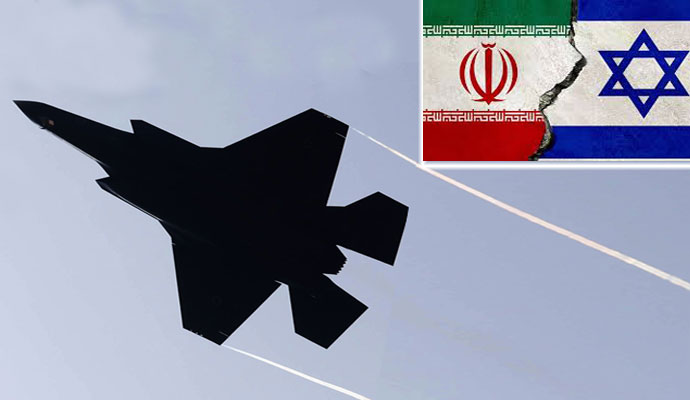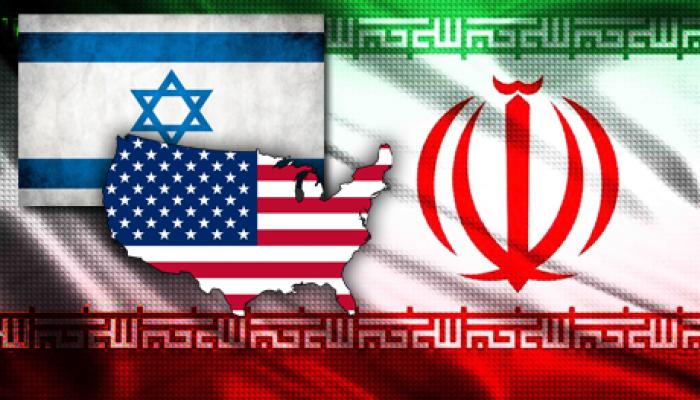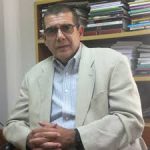Mr. Jake Sullivan and a great American tradition
On November 7, the National Security Advisor to the President of the United States, Jake Sullivan, was questioned in a CNN program, in regards to the delay on the part of his boss to fulfill promises of the electoral campaign, regarding relations with Cuba.
Sullivan’s literal response was that “about Cuba, things changed a bit this year. In July we saw substantial protests, the most significant in a long time. And we saw a brutal repression by the government that continues to this day, while convictions are still being handed down against some of those protesters”.
These words deserve some comment. The first is that the new government did absolutely nothing about what was announced in the electoral campaign between January, when it took office, and the month of July, when what he calls “substantial protests” took place. Biden did not even revoke those Trump measures that were implemented in violation of all the sacrosanct rules of interagency consultations, which must be respected before taking a step in foreign policy.
They could not even «rectify» Mike Pompeo’s illegal act of reincorporating Cuba on the list of countries that allegedly sponsor terrorism. An act that was committed under the cover of darkness and with malice aforethought.
What happened in July, which Sullivan considers «significant», is directly related to something called blockade, which is genocidal by nature and which, in a lethal combination with the development of COVID19, would have made any nation disappear from the map.
For much less than that, the United States had a year 2020 of social convulsions that shook the country from one extreme to another and on January 6, 2021, extremist actions were experienced in the regular life of Washington DC, which are yet to be understood in their full magnitude.
Mr. Sullivan used the adjective “brutal” with all intention (it is part of the script), to define the way in which Cuban forces of order and the people in general reacted to the events. He tried to provide an unreal sense of extension in the time of what happened when saying «until today.»
It is striking that this is the same official who has prepared the agendas of the President and the Secretary of State in recent visits by them to countries in the Latin American, region that live in an almost permanent state of siege or emergency, where there are missing persons, massive graves and false positives, where journalists and social leaders are murdered, where it is difficult to differentiate the gear used by the police forces from those used by the army, where there is more corruption than drinking water. But in those places Sullivan has been careful to recommend the adjective «brutal».
Mr. Sullivan, perhaps unintentionally, has made a triumphant entry into the long list of argument makers to give a veil of justification to the US policy against Cuba. It must be said that it is an old industry with remarkable products, but he already has his place in a story that began 62 years ago.
When, in April 1959, Fidel Castro left a personal meeting with then-Vice President Richard Nixon, and his fate was cast. The leader of the Cuban Revolution had traveled to the US capital, not to look for enemies, but to explain why the Cuban people had mobilized against the tyranny of Fulgencio Batista. But the vice president of the undisputed world power was struck by the strong sense of dignity of the guerrilla commander and above all … that he requested absolutely nothing, no scholarships, no loans, no recognition. Nixon wrote in his report on the conversation that, somehow, they had to «get rid» of this third world leader of a new type.
In reality, the intentions to physically eliminate Fidel predated this meeting and were never publicly debated.
But with the emergence of a new Cuban state that preached offering health and education for all, that attacked differences and racist manifestations and that restructured the pyramid of property and the distribution of wealth, the Pan-American domination scheme that the United States had designed for the western hemisphere felt a shudder. To be different in this area of the planet, to go beyond Washington’s design, was a crime that had serious consequences.
To demonize the Cuban Revolution, the United States would use all its tools, both to convince Cubans themselves that the new process was harmful, and to create rejection among the Americans and other governments and peoples of the world.
Someday one or more authors will draw up a precise document and order all the arguments made by US federal agencies to justify confrontational actions against Cuba, but it would not be a mistake to mention among the first of those the nationalizations of foreign companies based in Cuba.
It was practically impossible for the Cuban Revolution to change the existing state of affairs in the country without redistributing the wealth that was generated on the island, dominated by large estates and the transnational corporations from United States and other powers. Even more so if those companies began to conspire and attack the changes that were put into effect.
The revolutionary government, acting from the law, provided compensation schemes for the companies and countries that were the object of the nationalizations, which were scrupulously complied with, except in the case of the United States, a country that acted against the funds (sugar quota) that would generate the income that would allow to compensate.
Since then, the alleged impact on the United States by the nationalization process in Cuba has been part of the scaffolding of arguments that has been used to justify the blockade policy, but it is essentially fabricated. Its constant reiteration has even led a significant number of Cuban emigrants to assume this narrative to justify their own decision to leave the country. If so many former landowners and big businesses actually resided in South Florida, Cuba would be the size of Australia, or more.
To the extent that the United States gradually closed the economic options for Cuba and, as a consequence it was looking for alternatives in other destinations, then ideological condemnations began to appear that questioned the approach to «extracontinental» nations such as the Union of Soviet Socialist Republics and the People’s Republic of China. These arguments are those that are expressly cited in John Kennedy’s presidential directive 3447 to declare the blockade on Cuba, the same one that remains in place until today, despite the fact that the USSR was extinguished 30 years ago and China has been the main trading partner of the United States of America for the last two decades.
Fear of «communist influence» served as a driving force for both Operation Peter Pan, through which 14,000 unaccompanied minors emigrated to the United States; to the political proselytism and the armed actions of the «rebels» of the Escambray and other mountainous areas of the island, that claimed the lives of more than 600 Cubans in the 60s of the 20th century.
After the military defeat at Playa Girón and the negotiated solution to the October Crisis, the White House put all its efforts to isolate Cuba from the governments of Latin American and Caribbean countries. Although most of them broke diplomatic relations with Havana, in the opposite direction, ties with progressive political forces throughout the area with the Revolution multiplied. Leaders and rank-and-file members of various organizations came to the island to learn how the poor could carve out their own destinies in a tropical version. Each one returned to their place of origin with their own idea of how to replicate the Cuban experience according to the characteristics of their nation. The White House called this «export of the Revolution» at the time, which had a tinge of something illegal for those who were used to the «imposition of capitalism.»
For the Situation Room at the Pentagon and the CIA, the Sandinista Revolution, the popular struggles in Guatemala, El Salvador, the victory of the New Jewell movement in Granada were not explained because people were tired of being exploited, or because they aspired to a better world, but because of «the evil Cuban influence.»
During all the years in which the «Cuban military presence in Africa» was the slogan of the State Department to try to isolate Cuba, that same agency had no qualms about developing the theory of «constructive engagement» with the Apartheid authorities and maintaining Nelson Mandela on the list of terrorists with prohibited access to the “land of the free”. When the South African leader became a beacon of freedom for the whole world, Washington tried to change the narrative and even questioned his relations with Havana. It still hurts some that the definitive peace for the South West African region was signed in the heart of Manhattan with the presence, among others, of the victorious Cuban representatives in gala dress and with all their decorations.
When the Soviet Union and the socialist camp disappeared, a collective «it´s coming» was heard in English, because from Harvard to Oxford all prospective studies indicated that Cuba could not stand by itself on its two feet. Instead of building bridges, Washington set out (as now) to intensify the blockade, with the approval of the so-called Torricelli Act.
It was obvious that the loss of 85% of foreign trade and a reduction of 35% in GDP in Cuba had to bring with it some social consequence, which was expressed among other manifestations in the increase in Cuban migratory potential.
By 1995, when the recognition of Cuba for the heroism of resisting and surviving in unique conditions was growing, the draft of what would later be known as the Helms Burton Act began to circulate in the US Congress. His sponsors were finding it increasingly difficult to convince others that Cuba was a «danger.» But then came the provocation of February 24, 1996 and the debate died down, the atmosphere grew rare and the Cuban issue became toxic again.
As of 1998, other winds began to blow in Latin America with the rise to power of the Bolivarian Revolution, which continued with the election to the presidency of leaders such as Rafael Correa, Nestor Kirchner, Luis Ignacio da Silva, Evo Morales, Daniel Ortega, Pepe Mujica, with the consolidation of CARICOM as an integration entity and finally with the extinction of the Rio Group and the creation of CELAC.
At that time, Washington’s factory of arguments had some little quality problems in the production of new reasons to isolate Cuba, to the extent that in 2009 the OAS reversed the agreement by which it suspended the island’s rights. That is, Pan-Americanism acknowledged a mistake more than 40 years old.
The more recent story is better known. But it is worth noting that even under the conditions of Barack Obama’s presidency, reasons were fabricated to postpone changes in the relationship with Cuba. For five years the name of a USAID “contractor”, who came to the island to help subvert the internal order with federal money became headlines and a fence for the bilateral approach, which simply vanished when the political will was manifested to move forward. And that would be one of the greatest lessons of the moment: when from the top of the US executive power there is a willingness to take steps in foreign policy (in one sense or another), the arguments that until then were quoted to avoid doing that become useless and the factory of excuses ceases its production.
With the regression symbolized by the Trump brand, we returned to the state of affairs that we know best. But it is still useful to dig into two of the most publicized arguments for attacking Cuba, before Sullivan’s contribution.
Just coinciding with the election of the real estate magnate (more pretense than reality), who would have the mission of destroying everything that had the signature of the first Afro-descendant president of the United States, an undercover CIA officer in Havana reported from his bed some health symptoms that quickly jumped to other officers of similar origin. A few weeks later, the State Department officials incorporated the term «sonic attacks» into their daily jargon, until it was «leaked» to the press in mid-2017. The narration, without the contribution of any evidence, had an exponential development, causing the envy of television series such as «Game of Thrones» and diverting the attention of conclaves that are dedicated to the rigorous study of UFOs.
Despite all the contradictions in the dramaturgy and the script, the symptoms that were first generated supposedly by the use of sounds and later by microwaves, gave shape to a policy that not only froze actions and cooperation in a number of areas in the bilateral relationship with Cuba, but were the basis to justify a good part of the 243 measures to reinforce the blockade that the Executive implemented against Cuba.
With the same speed that John Bolton reached the seat (hopefully not the same) that Sullivan occupies today, at the end of 2018, another skeleton appeared in the trunk of the arguments against Cuba. Overnight the «presence of 20 thousand Cuban military personnel in Venezuela» was reported. At a time when Bolton and another character from well beyond (Elliott Abrams) had to explain to their bosses and the public that the government of President Nicolás Maduro remained in power despite the guarimbas, the theft of funds, the attacks against his life and other Machiavellian plans, it was necessary to make use of a patronymic who had been demonized for years before a public that was willing to believe such «reason.»
The “Cubans were behind everything that moves in Caracas”, the fierce resistance of the Venezuelan people did not matter, nor the capacity of their leaders.
But in all fairness, we must recognize to Biden’s team benefit that although they have assumed with some reserve and without knowing how to handle the issue of «unidentified (now) health incidents”, they have not dared to go back over the story of the «20,000 Cuban soldiers in Venezuela», while they conspire around the still possible negotiation between the government and the Venezuelan opposition (organized or not).
This is a very quick summary of the great American tradition that Sullivan has just joined through the main gate. In the age of labels, followers and likes, much less intellectual capacity is required to invent excuses and articulate campaigns, in fact there are some who do it with only two thumbs, a group of credulous and counting on good relationships in the board of digital platforms.
However, experience prevails: the more excuses, the less political will … and vice versa as well.




Déjanos tu comentario